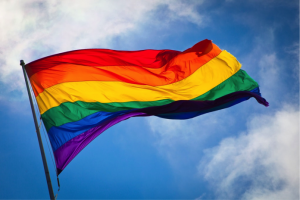fighting homophobia in sporting culture

Today Yarra Glen Football and Netball Club will host the second annual Pride Cup – an event that recognises and celebrates the diversity and inclusion of members of the LGBTIQ* community in sport. The match is also marked by International Day Against Homophobia and Transphobia (IDAHOT), an annual initiative seeking to educate people on the dangerous effects of ignorance and intolerance. Pride Cup – seeing the football field decorated with rainbows, and team players donning colourful jerseys – stands as one of the most radical shifts that this much-loved national sport has ever seen.
The man responsible for spurring the inception of the Pride Cup is Jason Ball, an openly gay Australian Rules footballer, and member of Yarra Glen. In addition to having headed the AFL Pride Campaign in 2012 – calling on the AFL to take a stand in fighting homophobia – Ball is currently an ambassador for beyondblue, Australia’s national depression initiative.
Ball came out publicly in 2012, and was met with overwhelming support from his fellow players and the general public. However, his transition from a closeted to openly gay footballer was anything but seamless. Rather, Ball spent much of his adolescence grappling with two seemingly polarised identities: being gay, and being a footballer.
His story is by no means an isolated one. The collective struggles that LGBTIQ youth face in first coming to terms with their sexuality, and then feeling the pressure to conceal it from their peers, reflects an alarming trend deeply ingrained within sporting culture.
Statistics released this month by organisation Out on the Fields, constitute the first global study on the effects of homophobia in sport. The results were shocking: 70% of respondents felt that youth sport in Australia was unsupportive of those who identify on the LGBTIQ spectrum. The surveys conducted – involving almost 9,500 people, both heterosexual and homosexual, and primarily from English-speaking countries – reveal a trend that whilst shocking, is not exactly surprising.
In Australia especially, male team sport continuously emphasises traditional Western masculinity and promotes ‘macho culture’. Players are pressured to be stoic and tough. Broadly speaking, the hyper-masculinity prevalent in AFL (to take one example) perpetuates the idea of the sportsman as dominant and aggressive, thus reinforcing the heteronormative paradigm already well entrenched within our society.
Throughout history, gay men and lesbians have been subjected to harmful stereotyping. Gay men have routinely been typecast as effeminate – ergo, uncharacteristically weak – and conversely, lesbians have been stereotyped as butch – ergo, uncharacteristically strong. This inversion of traditional gender roles also means that in terms of the sporting world, men are presumed heterosexual, and women (in rejecting traditional femininity) often face speculation in regards to their sexual orientation.
This stereotyping is particularly damaging when it comes to youth engagement in sport. For most, the experience of adolescence is nerve-wracking enough, years bursting with adventure, angst and apprehension, and constituting a critical period in one’s personal development. This is especially the case for LGBTIQ youth, who in the process of coming to terms with their sexuality and / or gender identity, must also navigate the hardships of existing in a society that may not accept nor accommodate them.
Engagement in sport is proved to have greatly positive effects on both physical and mental health. Physical activity releases endorphins in the brain and body, can assist in alleviating stress and tension, and in the case of team sport especially, encourages the building of friendships and communities.
As a marginalized and particularly vulnerable minority group, LGBTIQ youth need an even stronger support base. As it were, engaging in team sports would be a perfect avenue for achieving this, yet statistics suggest that LGBTIQ youth feel anything but welcomed into sporting communities.
Team sports enjoy incredible popularity in Australia. Other surveys conducted by Out on the Fields found that gay men in Australia were the second most likely group after New Zealand to engage in youth team sports. And contradictorily, it was found that gay men in Australia were also the second most likely group to remain in the closet. Negative experiences in physical education classes were experienced by 43% of respondents, with 36% also identifying fear of discrimination as a key factor for avoiding participation.
In order for Australian LGBTIQ youth to feel comfortable, open and accepted within their identities, our sporting culture needs to undergo radical change. But how are we possibly to tackle (pun unintended) such an overwhelming issue as homophobia in sports? The answer: education. It sounds obvious, but it truly could not be further removed from simplicity.
In order for LGBTIQ youth to feel safe being open about their identities, and to feel accepted and welcomed into sporting activities and teams, education is paramount. Ideally, this would occur at two institutional levels—within the schooling system, and within society more generally.
Events such as the Pride Cup point to a brighter future, suggesting ever-increasing public support for sportspeople who identity as LGBTIQ. However, as recent statistics have indicated, there is still a vastly long way to go in ensuring that members of the LGBTIQ community feel safe and accepted in sporting activities.
Developing a sense of pride is one of the most powerful tools to give LGBTIQ youth as they come to terms with their identities.
Sport is an incredibly large part of Australian culture and tradition. With such mass engagement in both the viewing and participating of various sports, it is one of the best avenues into prompting a collective rejection of homophobia. It’s well and truly time that sporting fields and courts became a warm and welcoming environment for everyone, irrespective of sexual identity.
*This acronym denotes Lesbian, Gay, Bisexual, Trans* (also known as ‘transgender’), Intersex, Queer and / or Questioning people


Clara, I love all the facts and the very objective information provided in your article. I love your writing – it is very engaging.